By Aluzu Ebikebuna Augustine
I humbly crave the indulgence to call on the attentions of all good people of Bayelsa state. I would not suffer to recount the travails our people went through before this State was created for us (BAYELSANS) in 1996, precisely, people went through rain and sun to have made it possible. However, a brief history will suffice to drive home my point.
Between 1941 and 1956, many nationalist movements were formed mainly to establish political sovereignty including the Ijaw Nationalist Movement. It will tell well on my part if I fail to mention that In February 1966, Isaac Boro, an ljaw man from Kaiama town in Bayelsa State, with Sam Owonaro, Nottingham Dick and thousands of their supporters unilaterally proclaimed a “Niger Delta Peoples Republic.” But the Federal Government tagged it a rebellion and brought it to a sudden end.
The Ijaws still pressed the issue of separate political sovereignty before the Willink Commission recommended the establishment of the Niger Delta Development Board (NDDB) to tackle the problems of underdevelopment of the area, environmental neglect and political domination. Despite the establishment of the Board, the agitation for state creation, based on the above stated problems, continued until the military wrestled political power and control of Nigeria from civilians on 15th January 1966.

When the civil war started in 1967 and Biafra lost control of Port Harcourt to the Federal forces, the newly created Rivers State was handed over to the Ijaws as a reward for the gallantry of Isaac Boro. Ijaw leaders continued to maintain that Rivers State, with Port Harcourt as its capital, was created for them as reward for ceding their coastal terrain to the Federal side, thus making the sea blockade of Biafra possible. The Ijaw groups claimed to constitute the majority in Rivers state and continued to dominate the state both during military and civilian dispensations. With time, however, the Igbo speaking people of the state, particularly the Ikwerre nationality, decided they wanted a state of their own where they would be able to assert their own political and economic interests.
This almost led to the quest for the creation of Port Harcourt State. However, the Ijaws felt if such a state was created they would become estranged in a city they have been part and parcel of since it was founded by the colonialists. In fact, they had even started portraying Port Harcourt as the capital of a future Ijaw state. Thus was born a great rivalry between the Ijaw-speaking and Igbo-speaking groups for the control of Rivers and between what was termed the “Okrika-Ijaw” and “Ikwerre-Igbo” over the “ownership” of Port Harcourt. The gruesome murder of Dr Obi Wali, the leader of the Ikwerre political front by yet-to-be ascertained assassins in 1992, owed to this tussle, which often led to street battles between Okrikans and Ikwerres.
Meanwhile, the late father of Nigeria’s nationalism, Dr Nnamdi Azikiwe, had discussed the best strategies for reducing the animosity between the Igbos and their Minority neighbours as well as dousing the ethnic tension between Ikwerres and their riverine co-indigenes of Rivers State. It was agreed that as the touted largest Minority group, the Ijaw needed a state of their own. But with their emotional attachment to Port Harcourt, how would Rivers State be split without creating a permanent ethnic war front in Nigeria’s premier oil city?
With the Ijaw groups obviously being favoured by the Northern-led Federal Government, Eze Woluchem, a lawyer who was installed paramount ruler of Port Harcourt in 1977 turned to Dr Azikiwe, appealing for him to support the aspirations of his Igbo kinsmen in the struggle. An ageing “Zik” referred the Eze’s delegation to Commodore Ukiwe, who had become Zik’s close political confidant.
The Eze’s delegation of four, which included the late Chief Okogbule Wonodi and Chief Andrew Uchendu, met with Ukiwe in his office in Victoria Island.
Their proposal was that Port Harcourt State should only be for Igbo-speaking Rivers people, while the Ijaw-speaking part would be named New Rivers State. On the other hand, the Kalabaris did not want to be parted with Rivers State, neither did the Okrikas, and Ukiwe advised that it would be “unstrategic” to cut out Bonny, Opobo, Kalabari and Okrika, apart from the fact that the Head of State, General Abacha, who was pro-Ijaw, might be pushed not to create any new state at all.
Between Ukiwe and the Ikwerre delegation, and taking into account the expressed needs of others, the maps of the present Rivers State and Bayelsa State were drawn and presented to Abacha, who found it acceptable.
On October 1, 1996, General Abacha included Bayelsa as one of the six new states approved by the Provisional Ruling Council, PRC. The postulations put together by Ukiwe and the Rebisi’s delegates worked like magic. Today the Ijaws have a state of their own with a capital at Yenagoa which is being styled the “Jerusalem of the Ijaw Nation”. What followed was the sharing of state’s assets. At the time the ijaws were given their own state from old Rivers state, they had just three (3) Local Government forming part of Rivers state and these Local Governments were Brass, Yenagoa and Sagbama. This also affected the sharing formula of state’s asset.
The “Ikwerre Igbo” who had more than twenty (20) Local Governments then would not let up some of their assets among which include two major oil refineries, two major seaports, airports, and various industrial estates spread across the land for their parting brothers. Even the Olympian hotel was not partitioned. The Ijaws were only given those assets which was situate in her new state. These assets were just the Kolo Turbine, Peremabiri Rice Farm and Bayelsa palm. These assets have since become the state’s pride, but also a symbol of political malnourishment on the part of its leaders since the state’s creation.
According to the 1952 Census Report, the ljaws of the Niger Delta region have been recognised as one of the ten major ethnic groups with a population of 0.9 million.
I have painstakingly chronicled the history of our state for a reason. It is no longer news that the Bayelsa state government under Henry Seriake Dickson is contemplating alloting 100 hectares of land to herdsmen. He has inaugurated already, a committee responsible for the management of cattle ranches, a concomitant of clashes between herdsmen and farmers in the state. I particularly raised the issue and my disapproval of this gesture to provide grazing land for pastoral farmers on the 13th day of December, 2016, through my social media outlet.
It is trite knowledge that the Land Use Act vest all lands in the state in the governor to control and manage, it does not however vest Federal lands in the state in the governor. The governor may also compulsorily acquire land subject to reason and having paid compensation. With the realities on ground in the state, Bayelsa state can not afford to pay compensation and acquire new lands. It will amount utmost want of sagacity for a state still battling to pay its workers “full salary” especially for the months of October and November this yuletide to embark on acquiring new lands for ranching purpose.
This leaves the governor with land which government has acquired for public purposes across the state. Howbeit, there is a grand conspiracy that the government of the day is contemplating to allot the state’s oil palm to herdsmen for grazing. While I am against such plan, those advising the governor to embark on this suicide move should not forget Aguta in a hurry. I urge them, irrespective of whatever financial gains or kickbacks they hope to garner form this venture to have a rethink.
According to the 2015 Global Terrorism Index, these Fulani militants are the fourth deadliest militant group in the world with a record killing of 1229 people in 2014. By drawing a line between the grazing reserves and host communities, an adversarial mentality is perpetuated, worsening tensions and reducing opportunities for cooperative and constructive engagement. Soon, these herdsmen will settle there and claim the Land. They will argue that they earlier paid for it or that it was an abandoned land, whichever way we want to disabuse our minds that it won’t get to that, I am foreseeing a very dangerous engagements between host communities and these herdsmen in the offine. We can’t afford to have clash with herdsmen over our state’s asset. What Bayelsa state needs is a Law as I have previously suggested to tackle this menace and not a grazing reserve.
Aluzu Ebikebuna Augustine is a Human Rights from Yenagoa, Bayelsa state.
Follow us on Twitter @gbaramatuvoice or Email: gbaramatuvoice@gmail.com
Copyright 2016 Gbaramatu Voice Newspaper. Permission to use quotations from this article is granted subject to appropriate credit being given to Gbaramatu Voice Newspaper as the source.
Support Quality Journalism in the Niger Delta Region
Join us in our mission to bring development journalism, cultural preservation, and environmental awareness to the forefront. Your contribution makes a difference in the lives of the people of the Niger Delta. Donate today and be a part of the change!



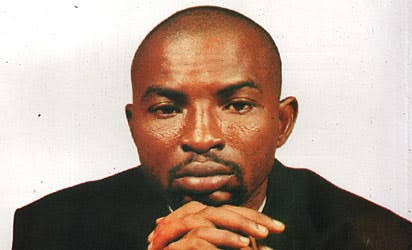
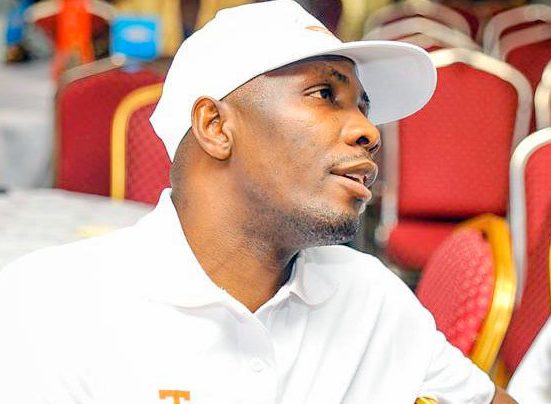
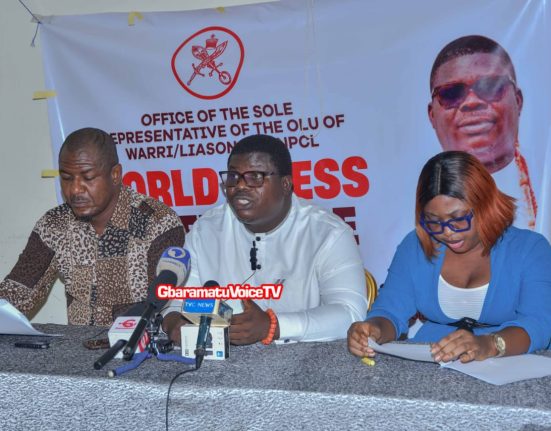
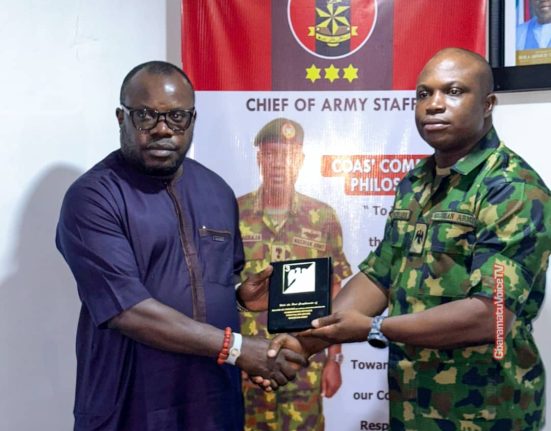
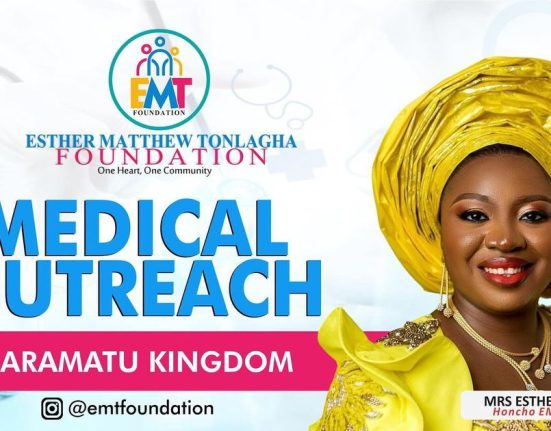


Leave feedback about this
You must be logged in to post a comment.